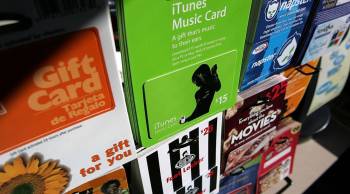Question: I received a Visa Prepaid card as a gift. I assume my friend meant to give me a regular gift card, but it seems they grabbed the incorrect and rather odd Card at the check-out. This reloadable Visa Prepaid Card requires me to register (giving my SS#), and it comes with loads of fees ($5.95 monthly maintenance fee, $3.95 Purchase fee per transaction…).
I’d never heard of prepaid cards, and am interested in learning who would use them and their advantages and disadvantages. I already have regular credit cards and use them wisely. Will registering in order to use this card impact my credit score at all? Is it best to register and then spend the entire balance all at once on one purchase? Can I get the balance in cash at a bank and be done with it? Thanks! Eric, Granville, OH
Answer: I’d spend the money and then “retire” the card. I wouldn’t recharge it.
Everyone is trying to lower their debts and curb their spending these days. That’s good for household balance sheets but bad for lender profits. For instance, the savings rate is higher than it has been for the past 15 to 20 years. The number of credit card accounts is down more than 23 percent since the 2008 peak. Debit cards are more popular than credit cards. Household debt service as a percent of disposable income is down a remarkable two percentage points since the fall of 2007–the lowest level in a decade.
The pre-paid credit card (more accurately a prepaid debit card) is part of this don’t-spend-more-than-I-make trend. It’s hard to get into debt trouble since the cash is paid up front and you can’t spend more than you put on deposit. There’s no credit check. You don’t have to work with a bank. You can use it for hotel reservations and rental cars even if you can’t qualify for a traditional credit card. There’s no reporting to the credit bureaus. What’s not to like?
Plenty. It doesn’t really work for many kinds of online purchases, such as subscriptions. But that’s really a quibble. The real price tag is the steep fees buried in the convoluted, complicated agreement. It’s an expensive way to do business. It may be sold as a behavioral finance tool these days–don’t spend more than you want to–but the cost of discipline is too high. But it’s a great fee product for the financial services institutions that are selling the product.
A genius of the financial services industry is to take a niche product and turn it into a mass market product. Sometimes the transformation is for the good, such as the rise of money market mutual fund in the 1980s. More often the niche product should remain just that. For example, interest-only mortgages could make sense for Wall Street bonus moguls in the 1990s, but when the technique spread to average homeowners it was a disaster.
You say you’re a credit card user in good standing. There is no reason for you to use a prepaid card once you’ve exhausted your gift. It’s mostly a niche product for those with a poor credit rating.
There’s a lot happening in the world. Through it all, Marketplace is here for you.
You rely on Marketplace to break down the world’s events and tell you how it affects you in a fact-based, approachable way. We rely on your financial support to keep making that possible.
Your donation today powers the independent journalism that you rely on. For just $5/month, you can help sustain Marketplace so we can keep reporting on the things that matter to you.


















